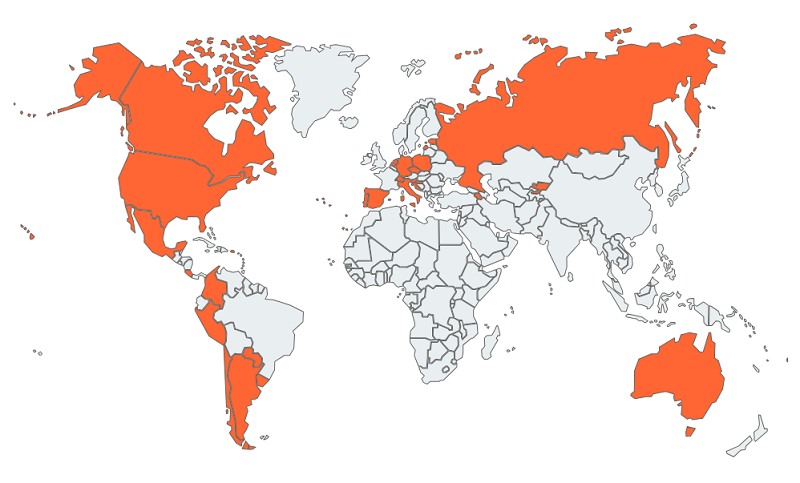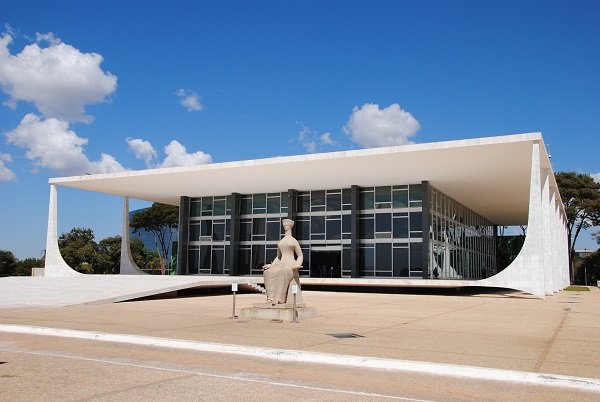On Thursday (01/06), the Federal Supreme Court (STF) postponed for the second consecutive week the judgment on the decriminalization of possession of marijuana for personal use. The topic is quite relevant, and it is connected to a larger debate about the fight against the organized crime, the prison population in Brazil, the structure of police in the country, discrimination, but ultimately, the model of the war on drugs imported from the US in the 1960s. The topic will be debated and voted on again on 21 June.
This Content Is Only For Subscribers
To unlock this content, subscribe to INTERLIRA Reports.
Motivation
Since 2015, the court has judged an extraordinary appeal by the Public Defender’s Office of São Paulo (DPESP) that challenges the punishment specifically provided for those who bring illicit drugs with them for personal consumption. The Defender’s Office filed the appeal after a man was convicted for possessing 3 grams of marijuana. The DPESP action forced the STF to analyze article 28 of the Drug Law, which establishes the punishments for possessing drugs.
Suspension
Before the trial was suspended, three judges voted and considered the article unconstitutional: Gilmar Mendes, Luís Roberto Barroso and Edson Fachin. The trial was not finished yet because in September 2015, the then minister Teori Zavascki requested time to better analyze the topic. After his death in an accident, in 2017, Alexandre de Moraes took his place, returned the case to the plenary and should be the next to vote.
Sale and Other Drugs
The STF session does not deal with the sale of narcotics, which will remain illegal regardless of the outcome. In addition, Fachin said that decriminalization should be done “exclusively” for possession of marijuana and Minister Barroso said he would not debate the decriminalization of the possession of other drugs.
Parameters
The creation of parameters that can differentiate a user from a dealer also motivated debate among the ministers. Barroso proposed a carrying limit of 25 grams of cannabis, the same criterion adopted by Portugal. For Fachin, however, the parameters must be established by the Executive Power, until the Congress approves a law on the subject.
2006 Drug Law and Prison Population
The Drug Law (Law no 11.343/06), signed by Lula in 2006, intended to distinguish the user from the dealer, removing the prison sentence for the former, and toughening the punishments for the latter. However, experts claim that, in practice, the law failed.
Those that criticize the law state that it facilitated convictions for trafficking but did not meet the goal of differentiating users from dealers. The problem would be the fact that the legislation does not stipulate objective parameters for doing this. Since there is no clearer criteria, the main evidence used by Justice to convict became the testimony of the police officers involved in the arrest.
To support this perspective, experts use statistics regarding incarceration in the country. In 2005, before the legislation, 14% of prisoners had been convicted of crimes related to drug trafficking. In 2019, this type of crime represented 27.4%, this index reaches 54.9% among women.
In 2005, there were 296,919 people incarcerated in the country. In 2019, there were 773,151 inmates, an increase of 160%. In 2022, the National Council of Justice (CNJ) estimates that the total number of people arrested is now around 820,000. However, there are only 442,000 slots in the system. The country has the third largest prison population in the world, after China and the United States.
Criticism of the Police Structure
Experts claim that the Brazilian polices are structured to meet targets for drug approaches and seizures, which would create pressure for the arrest of people with small amounts: small dealers and consumers. On the long run, the strategy would not contribute to the fight against drug trafficking and organized crime. It would be in fact worsening the scenario, leading to imprisonment in mass, especially of poor people from the periphery and favelas, a group that, differently from middle and upper-class consumers, cannot afford lawyers to avoid prison. On top of that, once inside prison, many petty offenders would tend to become gang members for protection or other reasons, enlarging the gangs’ ranks. For this reason, Brazil’s prisons are informally called the “universities of crime”.
The War on Drugs
Brazil’s drug policy was imported from the United States: the so-called war on drugs, which, since the 1960s, has proposed warlike combat and the imprisonment of those who sell and use illicit substances. However, after many decades, the failure of some strategies and new surveys brought different perspectives on the topic leading to the legalization of some substances in the US.

In recent years, Brazil has made the use of marijuana more flexible through court decisions and Anvisa regulations to treat epilepsy, Parkinson’s, autism, depression etc. A study by Kaya Mind, a data consultancy, estimates that this sector moved R$ 130 million in Brazil in 2021, an increase of 124% compared to 2020.
Our Analysis:
Despite the many changes across the globe in the policies used to fight illegal drugs and criminal groups that sell them, the political weakness of the current government – inside and outside the formal political circles – and the strength of the opposition, which is made up of conservative politicians in Congress, do not create conditions for radical transformations in the “War on Drugs Policy”. In addition, the strength of the conservative in the past few years has been mentioned as the factor responsible for the postponement of the conclusion of this trial. Still, if this small change regarding the possession of drugs is approved, it could bring some improvements to the scenario of prison overcrowding in Brazil. Thus, creating a small contribution to the fight against the gangs by reducing their appeal with prisoners, who live in terrible conditions and see in the criminal organizations as a way of protection and to fight for better conditions. Furthermore, many analysts also understand that the resources and efforts spent on small apprehensions could be better used with investigations that focus on solving more serious crimes, such as homicides. In addition, focusing on large apprehensions could also be more effective, by crippling the economic power of drug factions, reducing for example, their capacity to buy high-firepower weapons. The Federal Police adopt this approach: based on apprehensions and money laundering investigations, drug dealers and factions are “decapitalized” – in the last three years, R$ 2.8 billion in assets belonging to members of criminal groups were seized. However, this vision is not a consensus. On the other hand, another group of analysts believe that the decriminalization of the possession of marijuana for consumption could ease criminals’ lives and stimulate drug consumption.
Source: Folha de SP; Agência Brasil; UOL.




